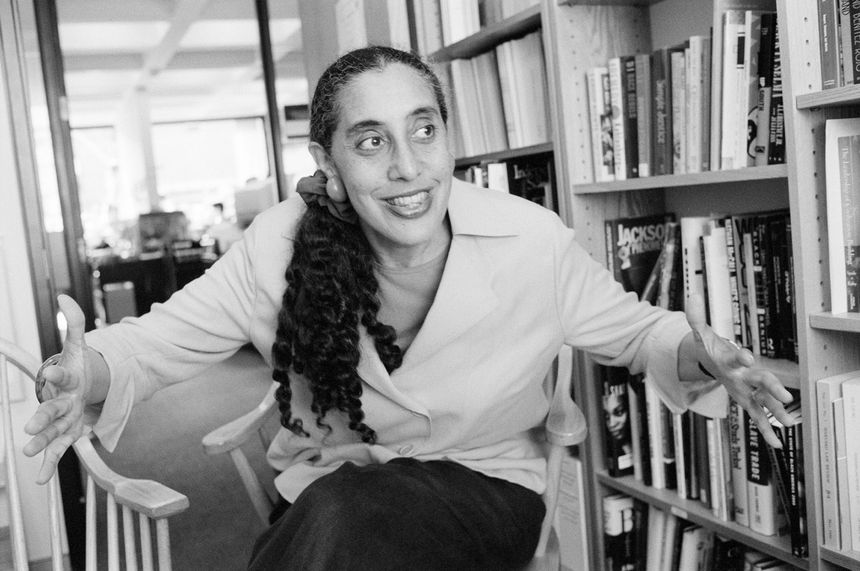by Professor Njeri Mathis Rutledge
Professor of Law, South Texas College of Law Houston
USA Today, Opinion Columnist – Board of Contributors
 On Jan. 7, a law professor that I will never forget died. Her name was Lani Guinier.
On Jan. 7, a law professor that I will never forget died. Her name was Lani Guinier.
Before meeting Professor Lani Guinier, I had heard both supportive and critical news stories about her. I knew she had worked with the NAACP as a voting rights advocate and that she was the former nominee for assistant attorney general for civil rights.
Professor Guinier would eventually become the first woman of color appointed to a tenured professorship in the history of Harvard Law School. Much has been said about her complex writings, brilliant ideas and controversy. She was an advocate for democracy and equality and one of our great legal minds.
Not enough has been said about the positive difference she made every day through teaching. I like to think of myself and my colleagues as good teachers because we care for our students and are invested in their success. Professor Guinier was not just a good teacher, she was phenomenal.
As a Black female law student at Harvard Law School in the ’90s, my professors were pretty monolithic. I had several high-profile professors, but finding a law professor who had the gift of teaching was more elusive. I was excited to learn from a Black female law professor, something I had not experienced in my first two years of law school.
Professor Guinier was more than a brilliant visionary, legal scholar or prominent professor. She was a gifted teacher. I remember sitting in awe in her class. Her energy and excitement for the material was contagious. Many of my law professors had the Socratic method down to an art form, regularly using rapid-fire questions. The focus was less about making one student recite than conducting a symphony of voices and ideas. I didn’t know another form of teaching existed in law school. Although I met some wonderful professors at Harvard, I often felt invisible.
Given her background, Professor Guinier had every reason to be unapproachable. She graduated from Yale Law School and had just received significant publicity from being nominated as an assistant attorney general before then President Clinton withdrew her name.
Instead, I encountered one of the kindest professors during my law school experience. Her love for teaching was apparent within the first minutes of the class, and she created a welcoming and intellectually stimulating environment. The class I took was on voting rights. We had great class conversations, and she would incorporate media clips into her lecture, a rarity at that time. She challenged us to think deeply and consider others. I felt seen.
She always treated her students with both kindness and respect. That may seem like a low bar, but when I was a law student, the idea of embarrassing and demeaning law students in class was not just a fiction of movies like “The Paper Chase” and “Legally Blonde.”
When I learned of her passing, I watched a video where her son, Harvard Law Professor Nikolas Bowie, shared remarks about his mother and her influence during his acceptance speech for a teaching award. He shared that Professor Guinier suffered from Alzheimer’s disease. Bowie revealed that after her devastating diagnosis, she had one desire – to teach. Initially, it seems odd that a wife and mother with many friends would prioritize teaching as a top priority before her illness took over. Teaching can certainly come with a variety of headaches and difficulties, but I don’t believe Professor Guinier was thinking about the challenges.
I believe she was reflecting on the wonderful privilege of making an imprint, whether small or significant, in the lives of her students. Professor Guinier understood that teaching was about making a difference, one student at a time.
Truly great teaching encourages students to dig deep and press forward toward their dreams. A great teacher brings information alive and inspires students to soar. It’s been more than 25 years since I sat in Professor Guinier’s classroom, but I still feel the impression she made on my life and in my own teaching.
The energy and passion Professor Guinier demonstrated in her classroom is the same passion I try to demonstrate in my classroom today. I am sure my love for incorporating media and video clips in my own lectures was inspired by her. When you were in her classroom, you felt like she cared. I have now been teaching more than 17 years, and I can only hope I am honoring her memory by impacting a few students of my own.



